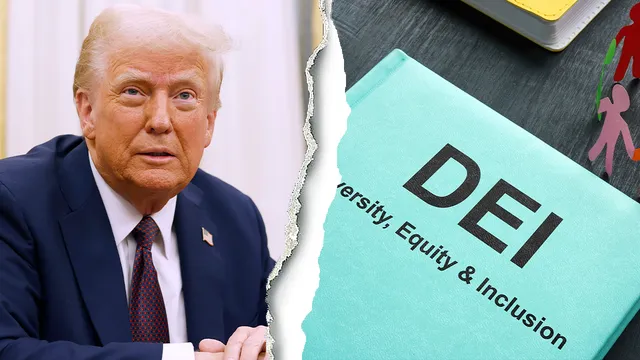
Judge halts firings of intelligence employees involved in diversity programs
2025-04-05 09:49- U.S. District Judge Anthony J. Trenga prevented the Trump administration from proceeding with the termination of 19 intelligence employees.
- This ruling follows their challenge against the automatic layoffs related to diversity, equity, and inclusion programs.
- The decision highlights the limitations on the administration's authority in managing federal workers and reinforces the need for adherence to established employment protocols.
Express your sentiment!
Insights
In Virginia, a federal judge issued a ruling that has significant implications for the Trump administration's handling of employees working on diversity, equity, and inclusion (DEI) programs within intelligence agencies. The ruling came after 19 employees challenged their planned terminations, which were part of a broader effort by the Trump administration to eliminate DEI initiatives within the federal workforce. Judge Anthony J. Trenga's preliminary injunction requires the Central Intelligence Agency (CIA) and the Office of the Director of National Intelligence to allow the affected employees time to seek reassignment or appeal their terminations. The ruling underscores the conflict between the administration's agenda and established employment protocols in government agencies, particularly concerning employee rights and job security. As the lawsuit unfolds, it highlights the ongoing tensions surrounding personnel management at the federal level amidst efforts to overhaul government structures and remove perceived inefficiencies. Moreover, it reflects broader societal debates over the value and impact of diversity initiatives in public service.
Contexts
The impact of diversity, equity, and inclusion (DEI) in the federal workforce is a pivotal area of study that addresses the numerous ways these concepts enhance organizational effectiveness and service delivery. The federal workforce, which consists of a wide range of roles and responsibilities, benefits greatly from a diverse and inclusive environment. This diversity encompasses not only racial and ethnic backgrounds but also includes gender, age, sexual orientation, disability status, and other factors that contribute to varied perspectives. Research indicates that diverse teams are more innovative and adaptable, providing comprehensive solutions to complex problems that may arise in governmental operations. Furthermore, an inclusive culture fosters a sense of belonging among employees, which is crucial for retention and job satisfaction. When all employees feel valued for their unique contributions, they are more likely to engage actively and remain committed to their work and the mission of the organization. Equity in the federal workforce ensures that all employees have access to the same opportunities and resources, which is essential for creating a level playing field. However, inequities still exist in many forms, including hiring practices, promotions, and overall workplace dynamics. Addressing these disparities requires a dedicated effort from leadership at all levels. Federal agencies are progressively implementing policies aimed at acknowledging and rectifying these inequalities through targeted recruitment strategies, mentorship programs, and professional development opportunities tailored to underrepresented groups. Such initiatives not only empower employees but also enhance the overall effectiveness of government agencies by tapping into a broader talent pool that reflects the demographics of the citizenry they serve. Additionally, fostering a commitment to DEI can significantly improve the perception of federal agencies among the public. When citizens see a workforce that is representative of the country’s diversity, it helps to build trust and transparency. Government entities that prioritize DEI are more likely to be viewed as legitimate and responsive to the needs of the community. This perceived accountability can lead to increased public engagement and cooperation, essential elements in a democratic society. Agencies that embrace DEI are better positioned to understand and address the unique concerns of varied populations, leading to more effective and equitable service delivery. In conclusion, the impact of diversity, equity, and inclusion in the federal workforce cannot be overstated. By nurturing a diverse workforce and creating an equitable and inclusive environment, federal agencies can harness a wealth of perspectives and ideas, driving innovation and enhancing service to the public. Committing to DEI initiatives not only benefits employees and organizations but also strengthens the very fabric of government, aligning it more closely with the ideals of democracy and public service. As federal agencies continue to evolve, prioritizing DEI will be a critical factor in achieving long-term success and fulfilling their mission to serve all citizens effectively.